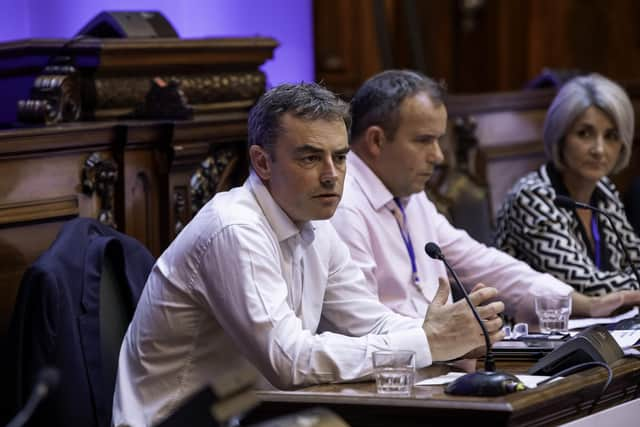UK risks 'huge mistake' in falling behind in global carbon capture race, Drax boss warns
Mr Heppenstall told a panel session on net zero at the Great Northern Conference that there is an “enormous” opportunity for the North of England to lead the way in the area if schemes such as Drax’s proposed carbon capture project for its biomass-fuelled power plant in North Yorkshire are given Government backing.
Earlier in the day, the Northern Powerhouse Partnership – of which Drax is a member – had unveiled its five-point plan for a “new deal for the North” which included a call for cross-party support for the net zero transition and specifically mentioned the need to back carbon capture and storage schemes.
Advertisement
Hide AdAdvertisement
Hide AdThe panel highlighted the global struggle to hit net-zero targets with more carbon present in the atmosphere now than at any other time in the last three million years.


Mr Heppenstall said support for Drax’s £2bn carbon capture investment plan would “give rise to a huge opportunity for the region and the country.”
He added: “McKinsey, the world-known consultancy, reckons that they are looking at a trillion-dollar market for carbon renewables by 2050. So, it is going to be enormous, and if the North of England can get in that early enough, then we can make it our area of expertise. The job-creating potential and skill opportunities in this area are huge.
“It is a global race. Holland and Denmark have announced their first projects for bioenergy with carbon capture and storage. If we do not work on it now, we will miss the opportunity to own the intellectual property on green innovation. That would be a huge mistake for the UK.”
Advertisement
Hide AdAdvertisement
Hide AdProfessor Richard Davies, pro-vice chancellor of global and sustainability at Newcastle University and a geologist, said the institution aims to reach net zero by 2030. He added: “We see our campus as a living laboratory which we use to experiment on geothermal, on combined heat and power. We have a critical role in the electrification of transport and making sure we help take a position in joining business together with the Government.”
He said part of this work will involve discussions with Saudi Arabia about the idea of establishing a joint hydrogen centre in the North. The session also heard about efforts to decarbonise the Humber, which emits the most carbon of anywhere in the UK.
Dr Diana Taylor, MD at Future Humber, said of the region’s 2030 Vision plan: “Heavyweights of industries for the North will come together to make sure that we can deliver the infrastructure needed for carbon capture and the distribution of hydrogen.”